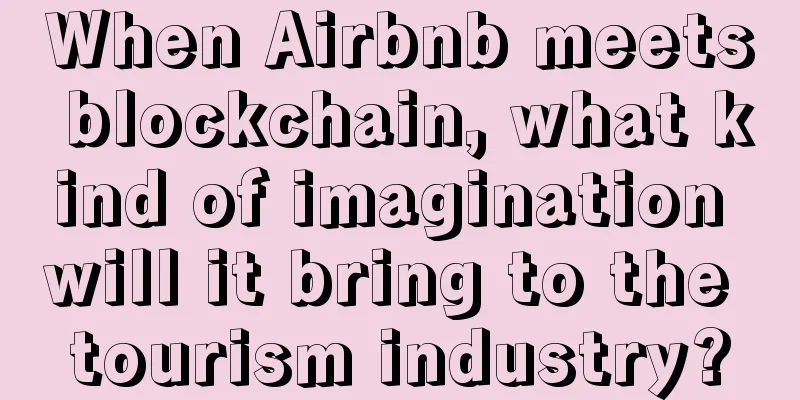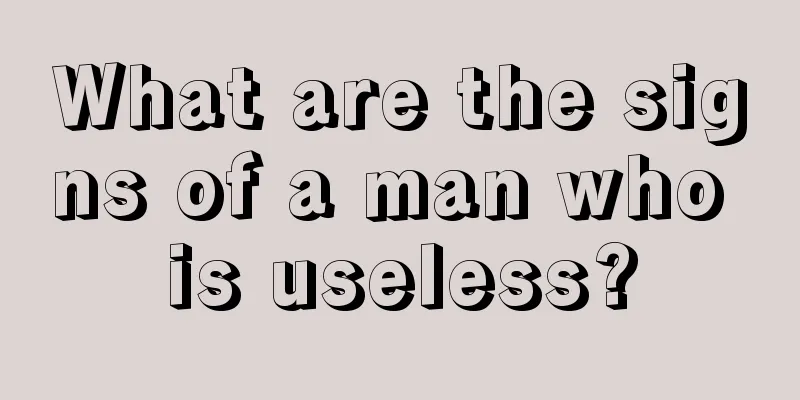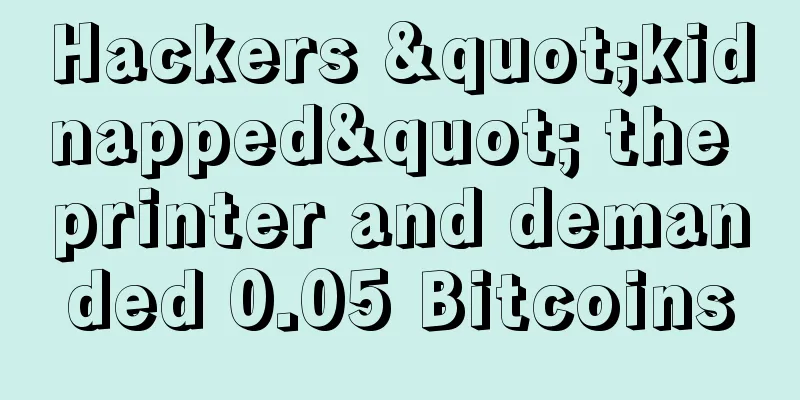Since 2016, many thought leaders in the financial technology field have been predicting what exciting trends and innovations will appear in 2016 , and one of the technologies that has been mentioned repeatedly is blockchain . Blockchain has long been a focus of the financial community , but it is now accelerating its implementation. According to the Wall Street Journal, on April 7 , 2016 , seven Wall Street companies issued an announcement announcing the successful completion of a test of using blockchain technology to replicate the credit default ( CDS ) swap transaction process . Digital Asset Holdings , founded by Blythe Masters, the former global head of JP Morgan's commodities department , is currently developing mainstream blockchain applications. The company has received $50 million in investment from JP Morgan Chase , Citibank and BNP Paribas . IBM is another company that values blockchain technology. Currently, IBM is working with other companies interested in blockchain to apply blockchain technology to various industries. Recently, Ant Financial's chief data scientist said that blockchain technology has begun to be applied to charity projects, so that the entire process of where each charity donation comes from and where it goes can be clearly recorded. The reason why blockchain stands out is that it can solve problems in financial transaction processes, verify transactions and credit, data management and security. In addition to the financial industry, the application prospects of blockchain technology in other fields are also very broad, and its application in the tourism industry is also eye-catching. Have you ever thought about receiving American Airlines Advantage miles as soon as you settle into your seat in the cramped space on the plane? Or that you don’t have to carry your passport with you when traveling abroad? Or, the next time you book an Airbnb or take a Didi Express, you can immediately check the credit rating of yourself, the landlord, and the car owner? A disruptive technology that originated from Bitcoin may be the solution to current travel-related problems: blockchain. Blockchain is the underlying system that runs encrypted virtual currencies such as Bitcoin, and Bitcoin is just another name for digital currency, with blockchain technology at its core. Melanie Swan, a blockchain theorist at the New School of Social Research in New York , said, "Bitcoin can be circulated as currency like Skype . Blockchain digitizes currency and then applies it to the Internet. Blockchain is the software protocol that runs Bitcoin." Swan used the analogy of sending emails to describe how blockchain works: just as sending emails is done through the SMTP protocol, transferring currency (Bitcoin) is done through the blockchain protocol. When you understand the relationship between blockchain and currency, you will find that blockchain is a P2P platform similar to PayPal or Venmo , but users do not have to wait for the sending and receiving banks to confirm the transaction or pay transaction fees. For blockchain to work, it does not necessarily have to use Bitcoin; blockchain can be combined with any currency or encrypted virtual currency, or basically any type of information. How to define blockchain? Blockchain is a data structure that combines blocks in a chain. It is suitable for storing simple, chronological data that can be verified within the system, and uses cryptography to ensure that the data cannot be tampered with or forged. It enables participants to establish consensus on the sequence of events and the current status of the transaction records of the entire network. Blockchain technology redefines the way credit is generated in the network: in the system, participants do not need to know the background information of others, nor do they need to rely on the guarantee or guarantee of a third-party institution. Blockchain technology ensures that the system records, transmits, and stores value transfer activities, and the final result must be credible. However, the application and development of blockchain has not been smooth sailing. Jeff Klee, CEO of Amtra ( CheapAir 's parent company), is familiar with Bitcoin and its use in travel. In November 2013 , CheapAir became the first online travel agency ( OTA ) in the United States to accept Bitcoin payments . Seven months later, the company said it had sold more than $ 1.5 million in airfare and hotel tickets paid for with Bitcoin . However, Klee said the company's bitcoin business has been stagnant since then. "Bitcoin volumes haven't dropped, but they haven't grown much either," he said. "We have a solid core customer base for bitcoin, but it's not growing steadily." Klee said that despite the challenges bitcoin faces, it doesn't mean it's a failure. "I don't think Bitcoin has completely failed, it's just not as promising as it was three or two years ago. Bitcoin has not yet achieved the potential that many people expected. I do think from the beginning that the biggest opportunity is blockchain technology rather than physical currency (Bitcoin). To become a mass-market payment method, Bitcoin must attract mass-market ordinary consumers," he added. But now, Klee sees many challenges facing travel companies that want to use blockchain technology to "build a full financial ecosystem." He believes that the technology needs more mainstream acceptance to gain greater traction. Currently, the only thing most travel companies can do with blockchain technology is to accept Bitcoin or other encrypted virtual currencies for payment. Klee said, "I think blockchain is a very promising technology that will have a significant impact on the financial system in the future. It makes sense that many companies are tracking the development trend of this technology and looking forward to using it when the time is right." Although blockchain-related applications are not yet common, some start-ups are still trying to use or thinking about how to apply blockchain technology to the tourism industry. Here are some examples: Blockchain in frequent flyer points programs CTO Cuomo, director of the WebSphere product line at IBM Software , said he envisions creating a rewards points system and a platform based on blockchain technology, and the Loyyal Network platform is representative of existing blockchain-driven frequent flyer programs. Loyyal is a universal loyalty rewards platform based on blockchain and smart contract technology. The platform introduces the concept of interoperability, multi-brand alliances, advanced project debt management and customized dynamic issuance / redemption option management to the current fragmented industry. In theory, on this platform, passengers can use airline points to pay for a hotel room upgrade, or use car rental loyalty points to buy coffee. Earning points is quick - the passenger gets on the plane, the points are credited, and then deposited into the passenger's electronic wallet. Airlines can even encourage passengers to use points to make purchases during flights. Sean Dennis, co-founder and COO of Loyaal (formerly Ribbit.me ) , said that the company's current platform can be applied to existing redemption network platforms, and brands can choose brands on the blockchain to connect to their rewards applications, whether they are members of the same airline alliance or hotel and car rental partners. By using smart contracts, the platform can push booking incentives or promotions directly to some travelers through the information provided by the passengers. On May 30 , at the 2016 Industry Theme Conference held at the Burj Al Arab in Dubai , blockchain startup and Global Blockchain Council ( GBC ) member Loyyal introduced a concept: how to use blockchain technology to enable tourists to better obtain consumer loyalty points to promote the development of the tourism industry. Loyyal has partnered with the Dubai Future Foundation to launch Dubai Points, a blockchain-based pilot project that is in line with the Dubai Future Foundation’s goal of vigorously promoting the development of Dubai’s tourism industry . “What would it be like if tourists could earn points for visiting a city? Dubai is the fourth most visited city in the world, but the experience could be even better. No matter where you earn points, tourists can redeem them anywhere, ” said Geg Simon, CEO of Loyyal. Simon predicts that smart contracts will play a major role in encouraging businesses to launch interoperability projects, such as linking points distribution to photos taken at certain locations and governing the rules for exchanging points between merchants. In addition to the "Dubai Points" launched by Loyyal in cooperation with the Dubai Future Foundation, the other six blockchain pilot projects proposed at the conference are health records, securing diamond transactions, ownership transfer, business registration, digital wills and improving transportation. Blockchain can solve the credit and regulatory issues in Internet car-hailing. La'Zooz system pays drivers with Zooz coins Swan noticed an emerging Israeli startup, the blockchain ride-sharing app La’Zooz . The company works like a decentralized, Bitcoin-powered Uber . Unlike Uber or Lyft, which are centralized platforms, La’Zooz allows smartphone users to earn Zooz coins on the La’Zooz platform , which can then be used by others in the La’Zooz community . Therefore , La’Zooz is a completely decentralized system that builds trust between users through public data circulating on the system . Users can join the ride-sharing network by downloading the La'Zooz app. Both drivers and passengers can join the network and earn Zooz coins in their own way . When a certain number of drivers in an area join (about 30% ) , users can take a taxi going in the same direction. In terms of payment methods, users do not have to pay in cash, but with Zooz coins, and points are recorded in the driver's account after payment. Field said, "Users only pay for the distance they take. This is the difference between La'Zooz and other online travel service providers. They are more like drivers providing rental services to make money, while La'Zooz provides real ride-sharing services. " Solving authentication issues In addition to being used to authenticate government-issued ID cards, driver's licenses or passports, blockchain can also be used to store immunization records, or electronic medical records, etc. "Anyone can check in real time whether a passport is valid through the blockchain," Swan said. "All these applications can become part of an electronic wallet where users can log in securely and check their records." Airbnb co-founder Nathan Blecharczyk recently told London financial newspaper City AM that Airbnb is studying how to use blockchain technology to verify the credibility and identity information of landlords and users. He said, "On the Airbnb platform, reputation is more important than anything else, and it will be more important in the future. For example, in the future, users will need to reach a certain level of reputation to rent a certain type of house. The question is, is there a way to export this information so that it can be checked when logging in elsewhere, and help other sharing economy models achieve breakthroughs. We are trying to collect various signals to judge the reputation of users, and some of the signals connected to the Airbnb engine are quite creative." In April 2016 , Airbnb recruited most of the employees of ChangeCoin , a blockchain technology company specializing in Bitcoin micropayment services , although Airbnb quickly responded that "we have no intention of acquiring ChangeCoin , nor do we intend to incorporate Bitcoin business into the Airbnb ecosystem." A blockchain-based online citizen program In October 2005 , eBay acquired Skype , an Internet voice service provider, for $ 2.6 billion in cash and stock , which was 1% of Estonia's GDP that year . Since then , Estonia has begun to shift its national industrial focus to the technology industry. In May 2014 , the Estonian government officially launched the E-Residency program, opening the precedent for commercial applications of blockchain. According to this plan, non-native residents of Estonia can apply for a government-issued electronic ID card, which is a bit like a permanent residence permit or a resident ID card. Holders can also enjoy some social benefits launched by the government. However, it should be noted that this electronic ID card is not a real, legal resident ID card and cannot be used as a visa. You still need to apply for a visa to travel to other European countries. Estonia launches electronic ID card, which can only be used by swiping card On the online citizen platform, applicants only need 18 minutes to start a business in Estonia (but they must operate within the framework of EU law). Currently, Estonia is using this program to encourage talented people from all over the world to start businesses in the country. Swan, who recently received an Estonian electronic ID card , believes that such programs will greatly promote the development of tourism in some destinations. She said, "Many tourist destinations are doing everything they can to attract tourists. The Estonian government is also doing something similar with the online citizen program to attract talents to Estonia to drive the development of the service industry. Many countries, like Estonia, have taken the lead in the application of encrypted virtual currencies and made full use of foreign talents and services to achieve development." Although only a few thousand people have obtained Estonian electronic ID cards, the number is still increasing, and the application of blockchain technology is also expanding. In February this year , NASDAQ and Estonia announced a partnership to build a blockchain-based electronic voting system on the country's online citizen platform. Blockchain will provide technical support for travel business Cuomo also believes that it is now possible to use blockchain technology to support the back-end systems of hotels or flights. In order for a flight to take off or a hotel to operate, various parties need to coordinate with each other, and all of this work can be done through the blockchain network platform. For any project involving multi-party cooperation, blockchain can help speed up the work process because all participants are on the same ledger. In many ways, blockchain technology is still in its infancy, and while it may still take years for it to become mainstream, forward-thinking organizations and companies are investigating the technology. “You remember mobile phones and the Internet, right?” Swan said. “In the 1980s , only a very small number of people had access to mobile phones and the Internet. Now, 20 years later , everyone can use mobile phones to access the Internet. I think the same is true for blockchain, but it may take another 5 to 10 years or even 20 years to become mainstream.” | 









